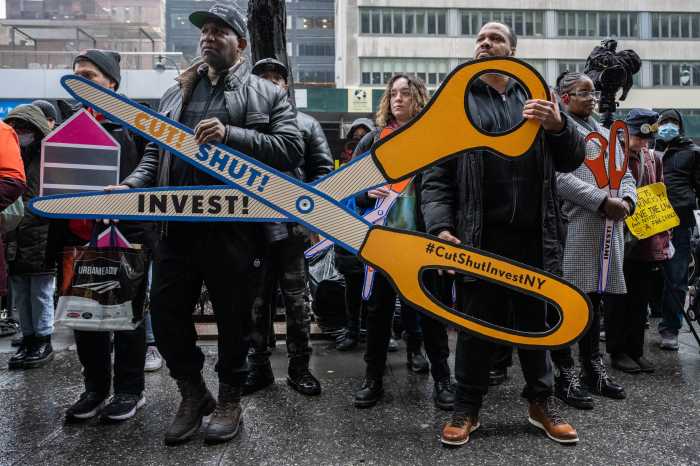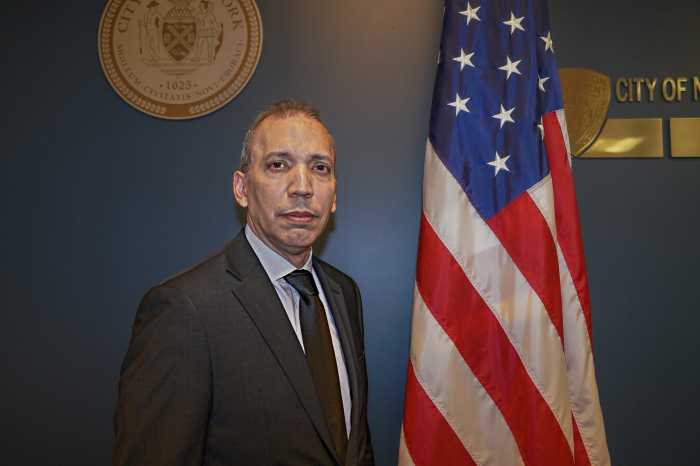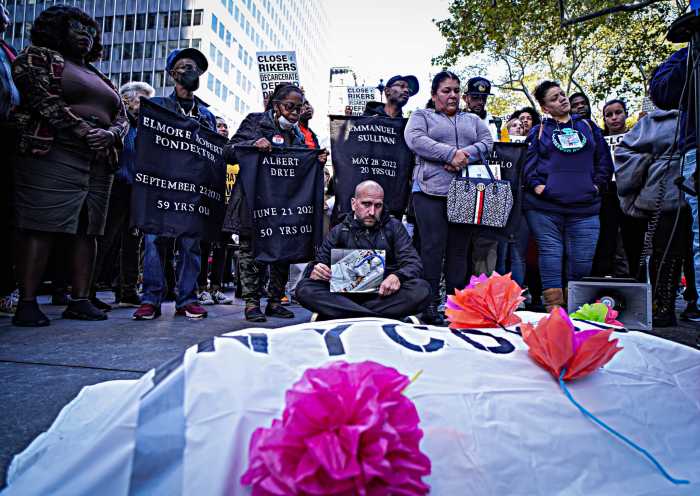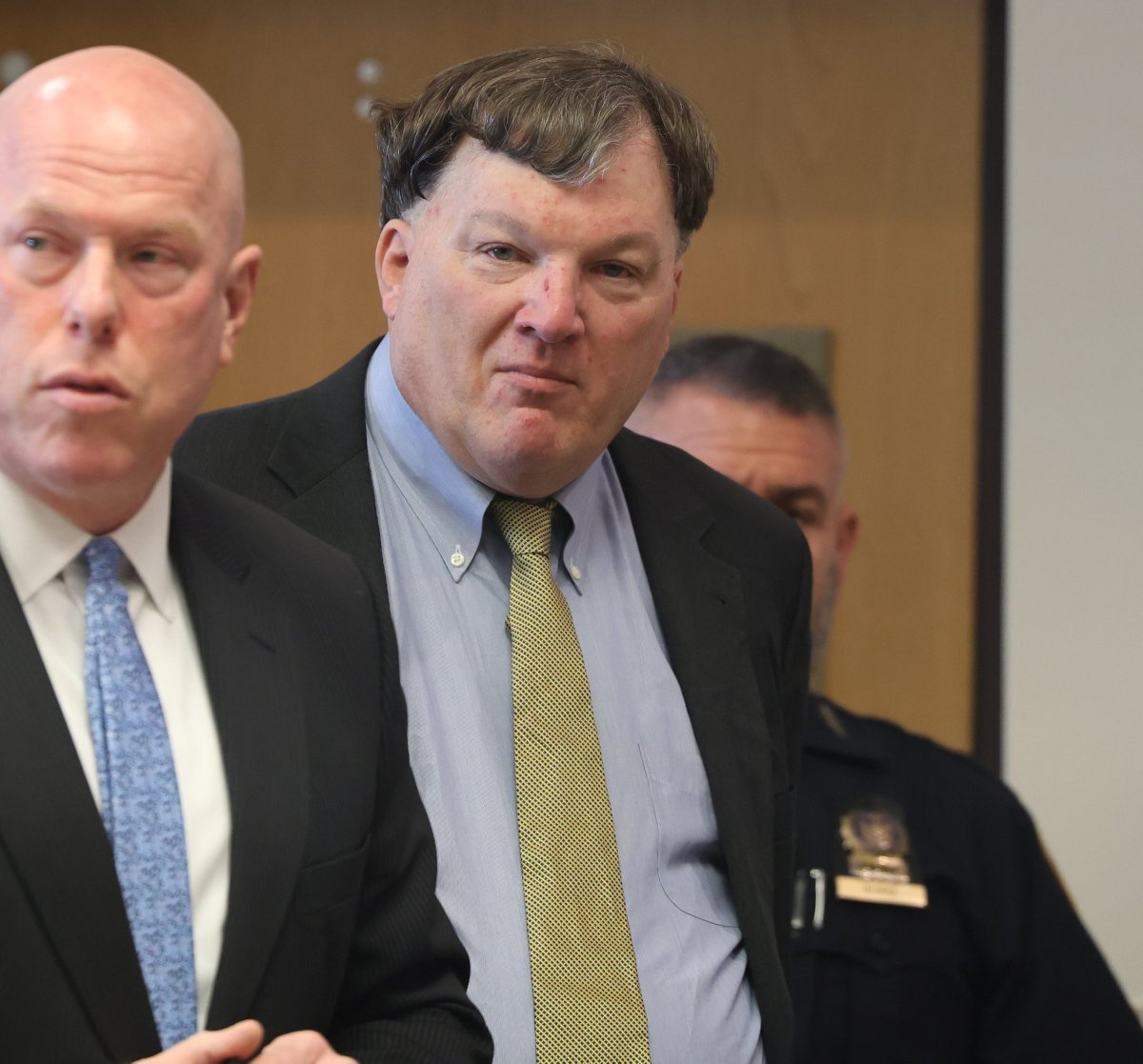A nurse is taught to be a patient advocate. We explain medications, procedures, and medical terms the patient may not understand. We listen to their concerns, and offer emotional support. Being a patient advocate is an important part of developing good communication with healthcare providers. It fosters physical and mental health as a patient moves through the overwhelming world of medicine.
I am a nurse and patient advocate who reviews medical records from hospitals, jails, and prisons across the country. These medical records are often disturbing. They offer a multitude of examples of ways that incarcerated people at Rikers are being neglected and abused. I want to share with you what I have learned.
The majority of incarcerated people at Rikers are, disproportionately, Black and Brown men who are being held pretrial. Members of our community, who are presumed innocent, are detained pretrial at Rikers for years.
The first process newly incarcerated people go through at Rikers is Intake, wherein their mental and physical needs are assessed. In 2021 and 2022, multiple news sources reported that people were being held at Intake in inhumane conditions, including overcrowding, no access to toilets or medications, and moldy food. Dangerously long stays in Intake have continued into 2023. The medical records I have reviewed also show that people in most Rikers housing units are not being escorted to medical appointments. Patients who need to see specialists wait a dangerous amount of time to be examined and treated. Medical emergencies that should be addressed within a matter of minutes are often ignored for hours.
I have read the medical records of people at Rikers with injuries and infections that have gone untreated entirely. People with diabetes, cancer, Crohn’s disease, and mental health diagnoses have gone unmedicated or been administered a uselessly low dose of their prescribed medication. I have read about incarcerated people with heart conditions who waited months to see a doctor. One of them required a pacemaker. The device was surgically implanted only after the patient had become unconscious multiple times.
An extraordinary number of medical records show that the most basic of medical care, such as monitoring high blood pressure, does not happen at Rikers, leaving incarcerated people at that prison at a much higher risk for heart attack and stroke. So many asthmatics are not receiving the correct medical care, it is astounding. Reviewing these records, it would be painfully obvious even to a lay person: medical care at Rikers is not adequate, and has never been acceptable. Chronic diseases are taking hold. Acute illnesses are disabling people. People are dying. The damage is real, lasting, and generational.
In this country, healthcare providers are under constant duress. We often experience burnout. In order to protect ourselves from the harshness of healthcare work, we tend to create distance between ourselves and our patients. This dynamic is dangerously amplified in jail settings, where corrections officers and healthcare providers use military terms, and refer to the individuals they are caring for as “offenders,” “inmates,” or —- and this term may be specific to Rikers -— “packages.” Language like this creates an environment where incarcerated people are seen and handled as things, rather than patients — with minimal agency and often complex medical issues, detained in an environment that fosters poor health — who require compassion and advocacy.
We healthcare providers made a promise to advocate for our patients. We do this pre- and post-incarceration. We must also advocate while they are incarcerated. The thousands of people at Rikers are a part of our patient population, regardless of their incarceration status. They have one life. One body to care for.
Healthcare providers in New York must make our voices heard. If Rikers cannot provide proper medical care for people who are incarcerated, those people need to be released, so that they may obtain care in their communities. Not tomorrow. Not in a month. Today.
Jennifer Grossman is the Executive Director of Nurses for Social Justice, a non-profit organization that mentors healthcare providers to work alongside public defenders. NSJ is a member of the Campaign to Close Rikers.







































